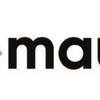Cost Cuts Ease Pain of Maersk's Gloomy Shipping Forecast
Net profit below forecasts, operating figure above; group hit by low freight rates and low oil prices.
A.P. Moller-Maersk's progress in cutting costs reassured investors on Friday after the Danish shipping and oil giant reported a sharp decline in quarterly profit and its new chief executive confirmed that earnings would fall this year.
The Copenhagen-based company fired its CEO in June and replaced him with Soren Skou, head of its Maersk Line container business, indicating it could split it into separate companies and sell off part of the group, including its oil division.
Skou, a company veteran who has to respond to a shipping industry recession and tough oil markets, is expected to present the results of a strategy review in late September.
Maersk Oil is seen as a prime candidate for sale. In 2018, it will produce only half of what it does today after losing a major contract to operate Qatar's largest offshore oilfield.
"Therefore we see less strategic rationale for having Maersk Oil in the Maersk Group going forward," analyst Espen Landmark Fjermestad from Fearnley Securies said.
The group is fighting to remain the world's largest container shipping carrier as a wave of mergers and acquisitions, particularly in Asia, creates new challengers.
Earnings figures illustrated the problems faced by Skou, who has been with the company for three decades.
Maersk's net profit fell 90 percent to $101 million in April to June, amid significantly lower container freight rates. It maintained a forecast for underlying profit this year to be significantly below last year's $3.1 billion.
Although Skou called the results unsatisfactory, Maersk shares were 3.2 percent higher by 1150 GMT as investors focused on its progress in reducing costs and the fact that the oil business performed better than expected.
"Cost reductions and operational optimizations...made a significant contribution to mitigating the impact of the negative market conditions," Skou said in a statement.
Lower costs were mainly the result of 40 percent lower fuel prices, improved fleet utilisation and greater efficiencies.
Maersk Line Makes Loss
Maersk Line, the group's biggest business unit, reported a loss of $151 million while expectations had been for a loss of $67 million.
"Maersk Line has reduced costs by 15 percent but it has not been enough to match a drop of 24 percent in freight rates," Skou said.
Maersk Line has decided to stop services to and from 10 ports in China to help to reduce costs.
Maersk is not alone in struggling with the industry downturn. German container shipping group Hapag-Lloyd said on Wednesday it made a first-half operating loss of 39.7 million euros ($44.2 million) as disappointing freight rates hurt its business.
Around 150 container vessels are expected to be scrapped in 2016, but that will not be enough for an industry battling over- capacity, low demand and falling rates, consultancy firm Drewry said in July.
Container shippers' poor results have sparked consolidation.
"We believe consolidation is positive for the industry and we do think there is a change that the industry will significantly consolidate over the next decade," Skou said.
He underscored that Maersk Lines will protect its market share which is estimated to be around 15 percent.
Market speculation has focused on DSV as a potential buyer of Maersk's Damco logistics unit. Maersk could also pursue a takeover itself as peers including Hapag Lloyd and CMA-CGM have already acquired rivals to boost their market positions in core areas including Asia and South America.
(By Ole Mikkelsen; Additional reporting by Teis Jensen; Editing by Alexander Smith and Keith Weir)










